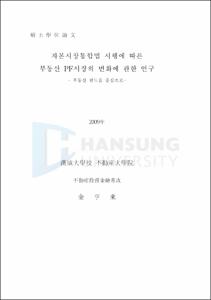자본시장통합법 시행에 따른 부동산 PF시장의 변화에 관한 연구
= A Study on Changes in the Real Estate PF Market with the Capital Market Integration Act : With a Focus on the Real Estate Fund
- Type
- Thesis
- Alternative Title
- 부동산 펀드를 중심으로
- Advisor
- 이용만
- Department
- 부동산대학원 부동산투자금융전공
- Issued Date
- 2009
- Publisher
- 한성대학교 부동산대학원
- Files in This Item:
-
-
Download
 000000344302.pdf
기타 데이터 / 1.01 MB / Adobe PDF
000000344302.pdf
기타 데이터 / 1.01 MB / Adobe PDF
-
Items in Repository are protected by copyright, with all rights reserved, unless otherwise indicated.